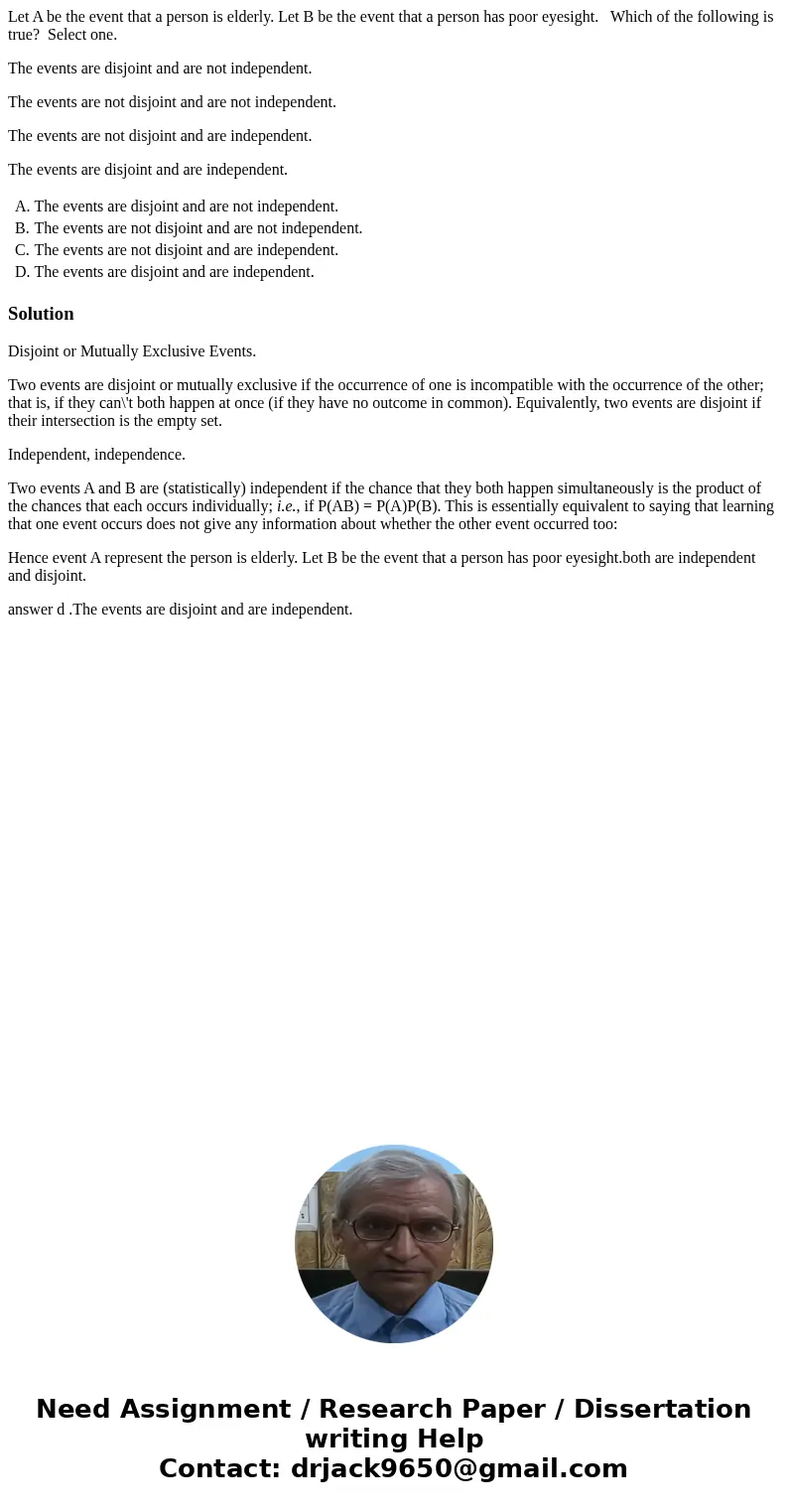Let A be the event that a person is elderly Let B be the eve
Let A be the event that a person is elderly. Let B be the event that a person has poor eyesight. Which of the following is true? Select one.
The events are disjoint and are not independent.
The events are not disjoint and are not independent.
The events are not disjoint and are independent.
The events are disjoint and are independent.
| A. | The events are disjoint and are not independent. | |
| B. | The events are not disjoint and are not independent. | |
| C. | The events are not disjoint and are independent. | |
| D. | The events are disjoint and are independent. |
Solution
Disjoint or Mutually Exclusive Events.
Two events are disjoint or mutually exclusive if the occurrence of one is incompatible with the occurrence of the other; that is, if they can\'t both happen at once (if they have no outcome in common). Equivalently, two events are disjoint if their intersection is the empty set.
Independent, independence.
Two events A and B are (statistically) independent if the chance that they both happen simultaneously is the product of the chances that each occurs individually; i.e., if P(AB) = P(A)P(B). This is essentially equivalent to saying that learning that one event occurs does not give any information about whether the other event occurred too:
Hence event A represent the person is elderly. Let B be the event that a person has poor eyesight.both are independent and disjoint.
answer d .The events are disjoint and are independent.

 Homework Sourse
Homework Sourse